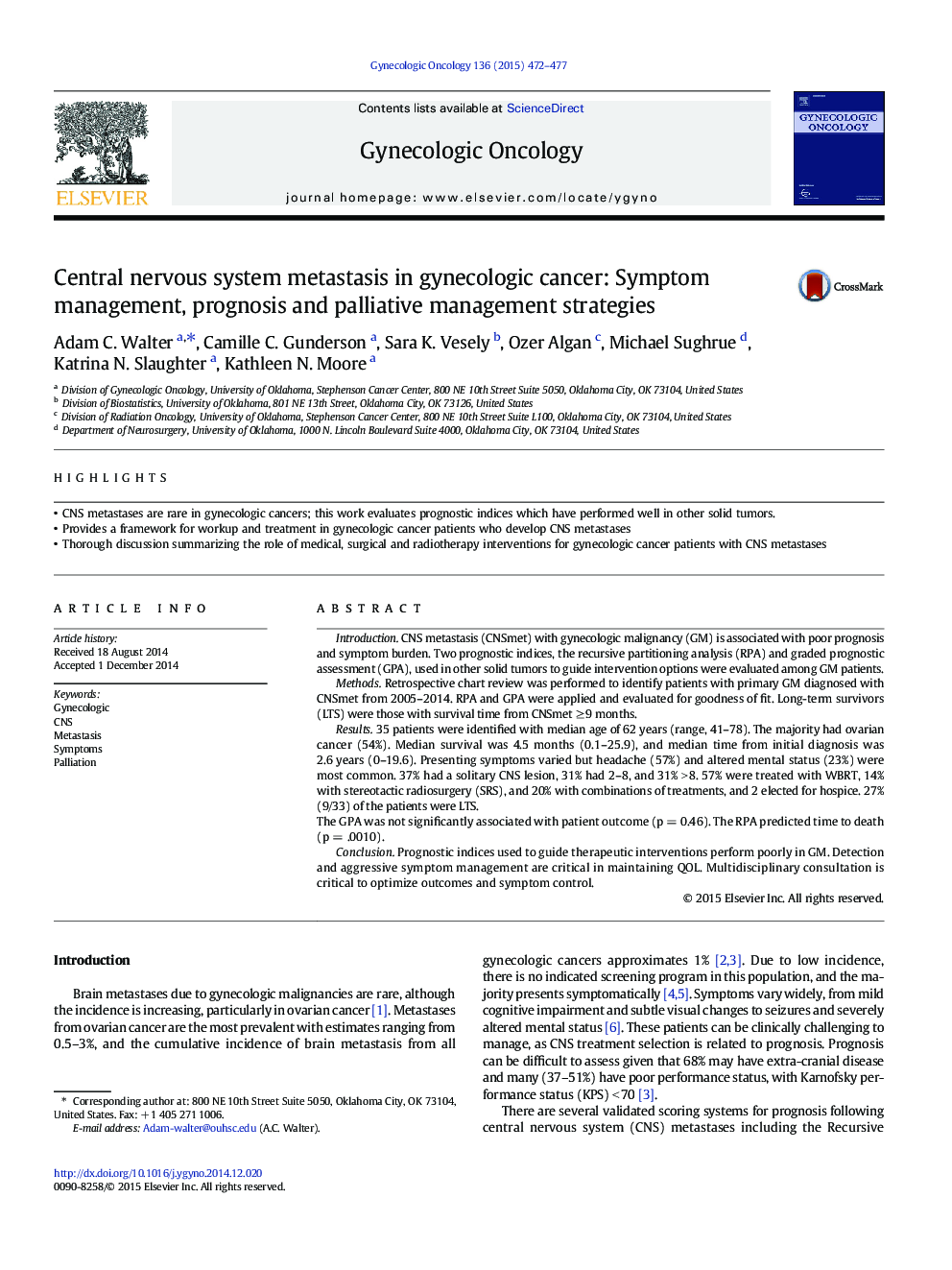| کد مقاله | کد نشریه | سال انتشار | مقاله انگلیسی | نسخه تمام متن |
|---|---|---|---|---|
| 3945632 | 1254278 | 2015 | 6 صفحه PDF | دانلود رایگان |
• CNS metastases are rare in gynecologic cancers; this work evaluates prognostic indices which have performed well in other solid tumors.
• Provides a framework for workup and treatment in gynecologic cancer patients who develop CNS metastases
• Thorough discussion summarizing the role of medical, surgical and radiotherapy interventions for gynecologic cancer patients with CNS metastases
IntroductionCNS metastasis (CNSmet) with gynecologic malignancy (GM) is associated with poor prognosis and symptom burden. Two prognostic indices, the recursive partitioning analysis (RPA) and graded prognostic assessment (GPA), used in other solid tumors to guide intervention options were evaluated among GM patients.MethodsRetrospective chart review was performed to identify patients with primary GM diagnosed with CNSmet from 2005–2014. RPA and GPA were applied and evaluated for goodness of fit. Long-term survivors (LTS) were those with survival time from CNSmet ≥ 9 months.Results35 patients were identified with median age of 62 years (range, 41–78). The majority had ovarian cancer (54%). Median survival was 4.5 months (0.1–25.9), and median time from initial diagnosis was 2.6 years (0–19.6). Presenting symptoms varied but headache (57%) and altered mental status (23%) were most common. 37% had a solitary CNS lesion, 31% had 2–8, and 31% > 8. 57% were treated with WBRT, 14% with stereotactic radiosurgery (SRS), and 20% with combinations of treatments, and 2 elected for hospice. 27% (9/33) of the patients were LTS.The GPA was not significantly associated with patient outcome (p = 0.46). The RPA predicted time to death (p = .0010).ConclusionPrognostic indices used to guide therapeutic interventions perform poorly in GM. Detection and aggressive symptom management are critical in maintaining QOL. Multidisciplinary consultation is critical to optimize outcomes and symptom control.
Journal: Gynecologic Oncology - Volume 136, Issue 3, March 2015, Pages 472–477
